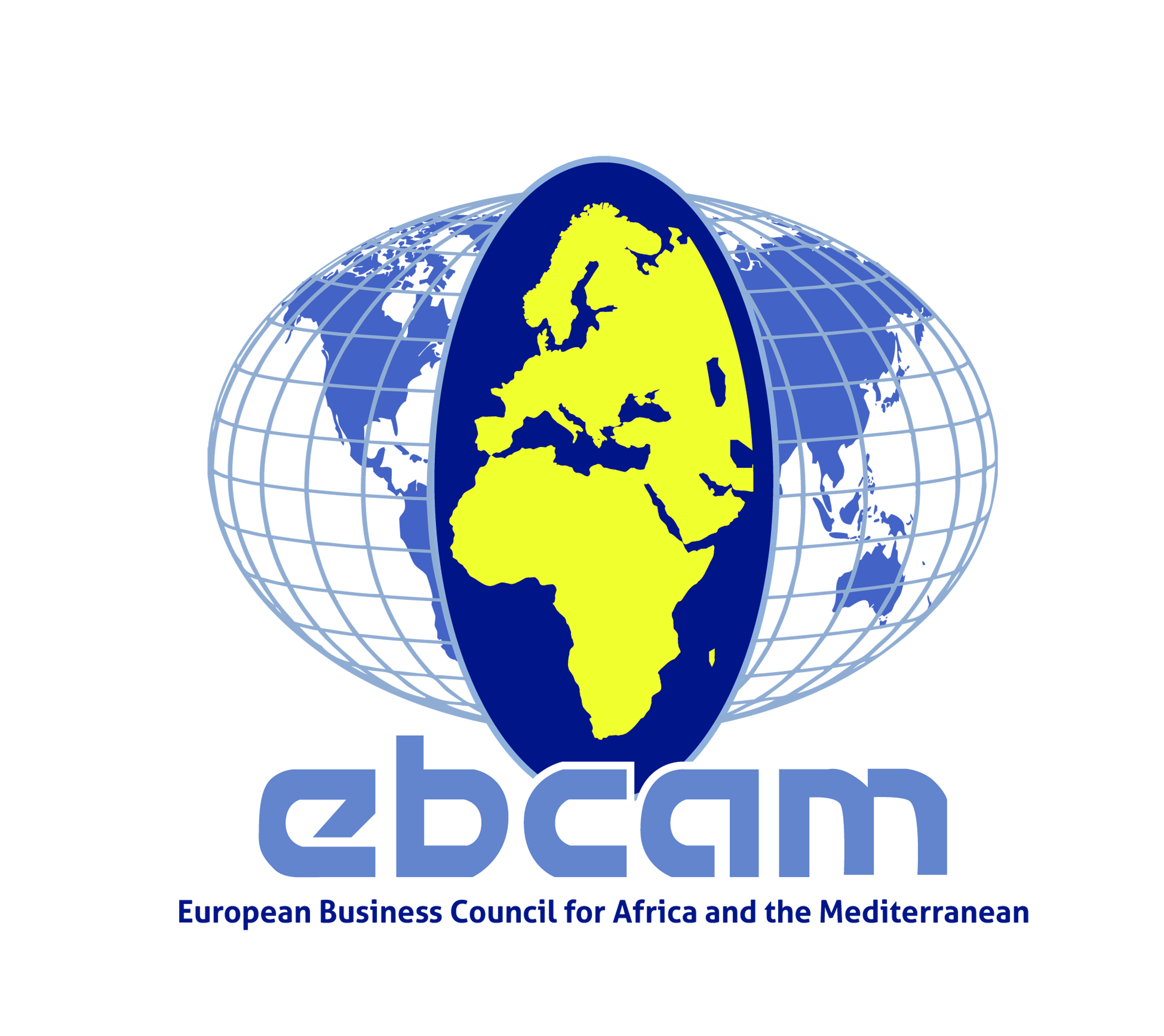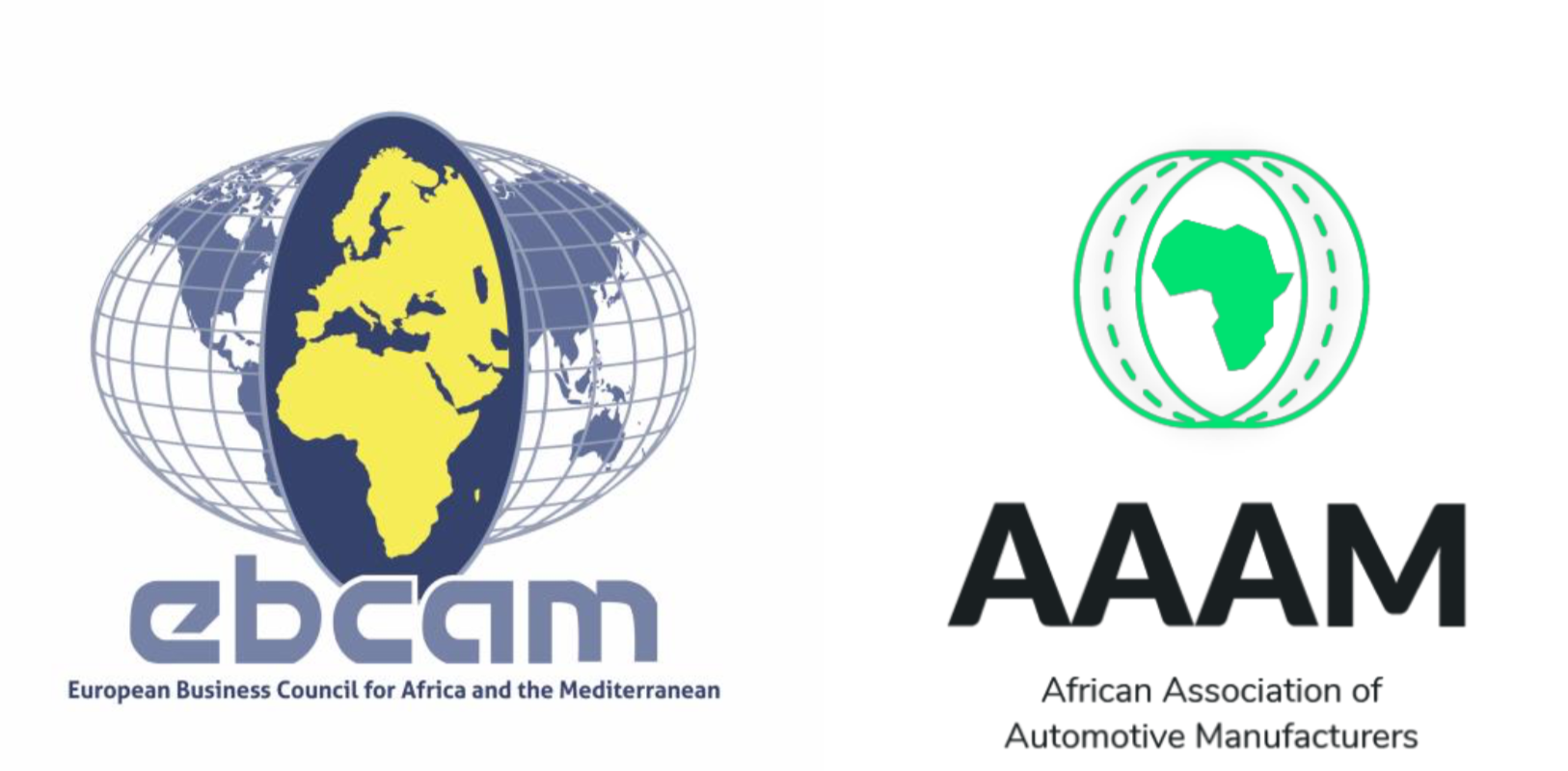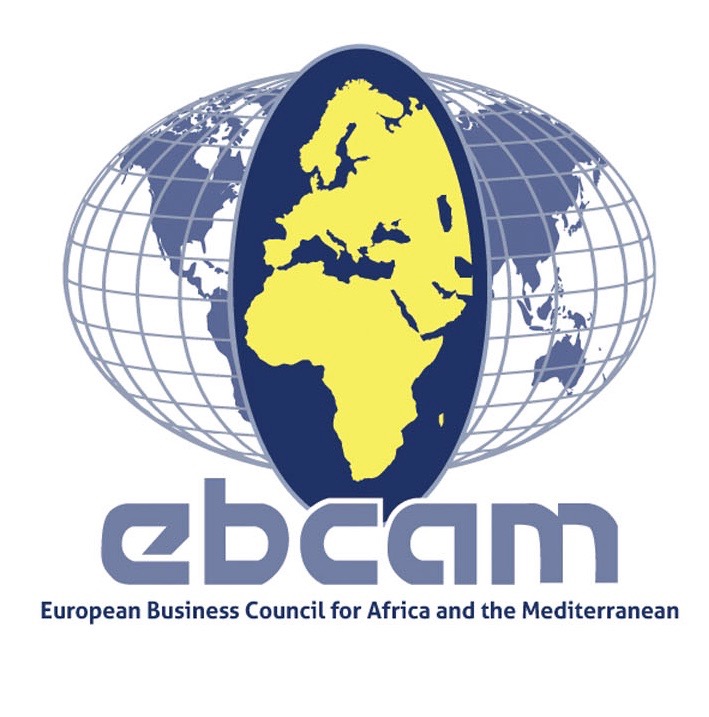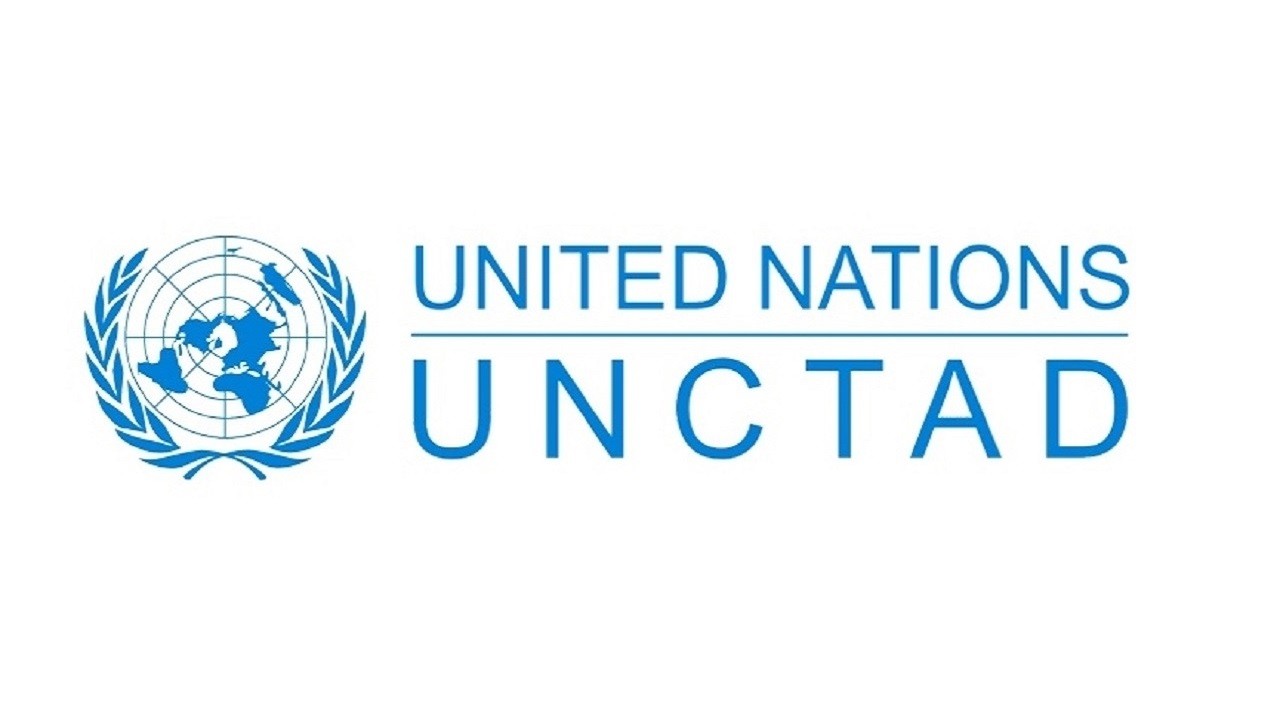EBCAM Position on the “Sustainable Corporate Governance” Initiative by the European Commission DG JUSTICE, published on 30 July 2020

EBCAM Position
29 January 2021
The European Commission introduced in July 2020 the initiative that aims to improve the EU regulatory framework on company law and corporate governance to enable companies to focus on long-term sustainable value creation rather than short-term benefits. In response to this initiative and the call for public consultation, the European Business Council for Africa (EBCAM) presents its contribution on aspects of EU laws and policies against the backdrop of the pandemic.
EBCAM-AAAM Position Paper: The automotive industry in Africa: domestic production for local job creation and safe, climate-friendly mobility

EBCAM-AAAM Position Paper
The automotive industry in Africa: domestic production for local job creation and safe, climate-friendly mobility
Summary
The mobility-automotive sector has great potential to become a key driver of, industrialization, economic growth and more local employment on the African continent. For mobility solutions, Africa has a major growth potential when you consider the young, growing population and rapid urbanisation across the continent. At the same time, the growth in demand for new vehicles in Africa can secure European jobs while providing investment opportunities and jobs on the African continent. The vision of a large-scale sustainable automotive production on the African continent can become reality – if institutions and enterprises work together for the same objectives.
It is in the African and European interest that Africa's streets are no longer filled by outdated, unsafe and old cars. Instead, modern, ecologically and economically viable mobility needs to be made available for African markets.
With the aim to present the job-creating and job-preserving potential of the automotive industry in Africa to you, the European Business Council for Africa (EBCAM) jointly with the African Association of Automotive Manufacturers (AAAM) has prepared a white paper, in which we outline a number of actions and ideas:
1. a more intensive support of the “Pan-African Auto Pact” for regional market integration;
2. the targeted promotion of green technologies and sustainable mobility, and the establishment of African countries as procurement partners through the relocation of production steps along the value chain.
EBCAM Declaration on the Future of the EU-Africa Relations ( A Private Sector Perspective)

EBCAM Declaration
Declaration on the Future of the EU-Africa Relations ( A Private Sector Perspective)
Summary
The postponement of the 6th AU-EU Political Summit and the 7th EU-Africa Business Forum that were scheduled to take place in Brussels in October 2020 are some of the consequences of the pandemic on the dynamics of the partnership.
The European Business Council for Africa (EBCAM) recently highlighted the urgent need to fix new dates for the two events with a letter to the European External Action Service and the European Commission. We welcome the conclusions of the European Council Summit of 15-16 October regarding the commitment to address the impacts of the COVID-19 on the African countries by furthering international debt relief efforts and by working its African partners on specific areas (digital and knowledge economy, green transition, mobility, renewable energy, health and agri-food systems).
Interview of EBCAM's President, Etienne Giros, in the French Newspaper L'Opinion on the progress of the post-Cotonou negociations between EU and the ACP countries

Interview of EBCAM's President, Etienne Giros, in the French Newspaper L'Opinion on the progress of the post-Cotonou negociations between EU and the ACP countries.
Coronavirus, do not forget Africa: urgent message from the president of EBCAM- European Business Council for Africa

The COVID-19 is quickly spreading throughout Africa. After Asia and Europe, it will wash over Africa in the next few weeks. While focusing on its own management of the crisis, Europe should not neglect the consequences that the spread of the virus could have South of the Mediterranean Sea.
African countries will have a hard time fighting the virus: whether with screening tests, confinement or respiratory assistance, African countries are poorly equipped to deploy these measures. Under-trained, and lacking equipment, they also have to deal with a highly dense population along with weak states, among which some are incapable of controlling their whole territory...
Postion Paper - "European Companies and Chinese Companies in Africa: Adversaries or Partners? How Compliance can Lead to Unfair Competition"

EBCAM Position Paper
Summary
European companies and Chinese companies in Africa : adversaries or partners ?
Or how compliance can lead to unfair competition
There is no denying that China plays a forever increasing role in Africa’s trade with rising numbers of Chinese companies investing on the continent. From an African perspective, the presence of a new economic partner such as China can be seen as an advantage in many respects. While there is no need to idealize or demonize the presence of Chinese companies in Africa, it is nonetheless important to point out China’s unfair competition practices which not only pose a threat to European companies but can also unbalance Sino-African relations. It has therefore become necessary, for the sake of European companies and the well-being of Africa’s emerging States, that China complies with internationally accepted good practices including OECD compliance rules. As the representative of 4,000 European companies, EBCAM calls on the EU to pursue its dialogue with China to ensure a level playing field for these companies and truly benefit Africa’s development.
Implementing the Sustainable Development Goals (SDGs) through EU Development Policy

Implementing the Sustainable Development Goals (SDGs) through EU Development Policy: a debate on the occasion of preparations for the Joint Synthesis Report
Panel 28-1-2019 speaking notes
European Business Council for Africa, the European Federation of National Associations and Chambers for Business in Africa, Alexandros Spachis, Secretary General.
INTRO
As the world prepares to face new challenges – from migration to climate change and from slowing global economic growth – international cooperation as, we knew it, in the form of North-South partnership based on unilateral aid transfers and grants, has proved to be insufficient. In order to face these, including eradicating poverty and redressing inequalities, one of the main requirements is to stimulate the investment needed for real and sustainable development, estimated to be some 10 or 20 times larger than all the aid budgets of today put together.
UNCTAD confirmed Observer-Status for EBCAM

EBCAM is pleased to announce, that on 7 June 2018, the Trade and Development Board of the United Nations Conference on Trade and Development approved the application of EBCAM for observer status with UNCTAD.
EBCAM Statement for UNCTAD Letter of Approval from UNCTAD to EBCAM
Interview with Dr. Alexandros Spachis, Secretary General, European Business Council for Africa

November, 2017
Please explain for those that are not familiar, the purposes and the action of European Business Council for Africa EBCAM since you took over the function of Secretary General.
The European Business Council for Africa-EBCAM is a European Federation (non-profit organization) promoting economic development in Africa through private sector initiatives. Headquartered in Brussels, it is located at the heart of the EU & International institutions and the hub of diplomatic community.
We are the only organization that comprehensively represents the range of business activities undertaken in Africa by European companies. We are structured and divided into a large network of 10 national African Business Associations, where we, EBCAM, act as the umbrella organisation representing the combined national interests of our members through advocacy in (and information from) the European institutions, international organisations and African diplomatic missions in Brussels. Our members are Africa-targeted business councils from European countries and they in turn have some 4000 companies on their respective membership lists. Our members are therefore only national chambers, not specific enterprises. At our Brussels based office, as well as during our business travels, we intensively promote private sector engagement in Africa on a regular basis.
I will highlight below some important aspects of the work of EBCAM:
EBCAM's Position Paper on Post-Cotonou

Our organisation has been invited by the European Commission earlier in March this year to participate in the consultation on the future Partnership with ACP countries following the Cotonou agreement that will expire in 2020.
It is our opinion that the present system is not sustainable; a geographic separation of the three regions is warranted; everything should go on budget and the old system of EDF should not be perpetuated. Regarding the improvement of the business climate and economic development in Africa, we propose to: consider provisions on mutual protection of investments; recognise the public-private dialogue (PPD) as a key instrument for development and growth accelerator; encourage dispute settlement mechanisms, assist the fight against tax fraud, tax evasion and fiscal harassment; fight against corruption; give higher priority to the South-South cooperation; assist the acceleration of regional integration.
Acknowledging the role of the private sector and the respective mutual interests in the global management of public goods is important. In this context, EBCAM calls for a more structured and sustained dialogue with the European Institutions and European private sector.
On a wider perspective, rural and agricultural development should be among the priority sectors to create jobs over the short and long-term. Moreover, demographic transition and improved birth control measures should also be a priority, assisted by substantial resources. The new partnership will have to cover better security issues, which should be viewed as a global public good and cannot be financed only by the concerned countries.
To conclude, the ambitions on the “after Cotonou” should not be about improving the implementation of the present system of the expiring Agreement but about a new collaborative and sustainable partnership for the future.




